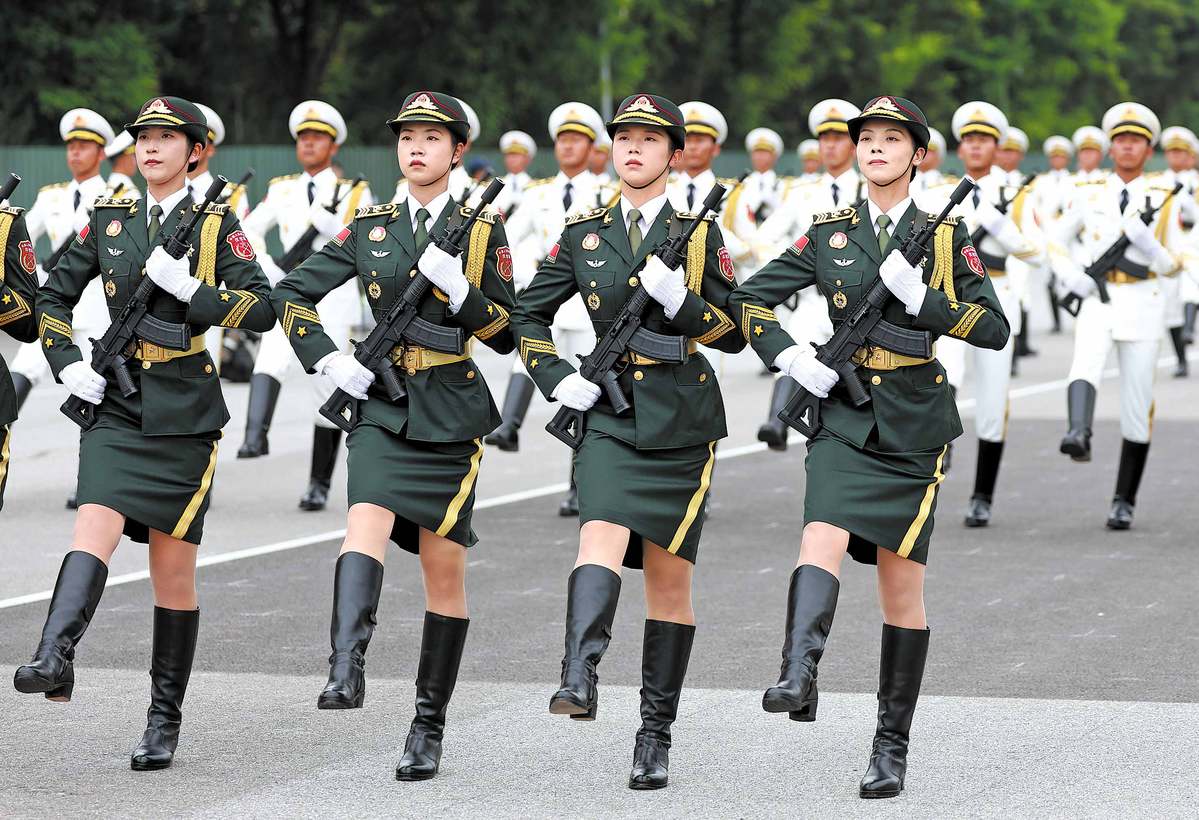政府新闻
9月3日阅兵彰显中国和平决心 2025-08-28
 Troops march during a training session in Beijing on Aug 12 as they make preparations ahead of the Victory Day military parade on Sept 3. The parade is part of a grand gathering marking the 80th anniversary of the victory in the Chinese People's War of Resistance Against Japanese Aggression (1931-45) and the World Anti-Fascist War.
Troops march during a training session in Beijing on Aug 12 as they make preparations ahead of the Victory Day military parade on Sept 3. The parade is part of a grand gathering marking the 80th anniversary of the victory in the Chinese People's War of Resistance Against Japanese Aggression (1931-45) and the World Anti-Fascist War.On Sept 27, 1942, Lisbon Maru, a cargo ship carrying more than 1,800 British prisoners of war, mostly soldiers from Britain's Hong Kong garrison, to Japan was torpedoed by a US submarine. The Americans didn't know the vessel was carrying POWs. Those POWs who managed to break through the hatches faced machine-gun fire from Japanese guards on nearby ships. Some survivors who made it to the Chinese coast found salvation in an unexpected place: local fishermen who, despite their own hardship, risked everything to pull the strangers from the water and give them food and clothes.
History demands remembrance. That's why China will hold a military parade on Sept 3 to mark the 80th anniversary of the victory in the Chinese People's War of Resistance Against Japanese Aggression (1931-45) and the World Anti-Fascist War.
Yet some commentators are seeing hidden "signals" in the event. The underlying anxiety such interpretations reflect is the result of trying to connect the parade's supposed messages to today's complex geopolitics. This is understandable, because in these times of heightened geopolitical competition, skeptics will magnify every gesture, and read hidden meanings into every tradition. But by doing so, they are misunderstanding what, at its core, is an act of remembrance.
The fact is, the parade's fundamental purpose is to commemorate the 80th anniversary of the victory in the War of Resistance Against Japanese Aggression and the Allied triumph in World War II. In the first half of the 20th century, China endured a war that threatened its very survival, with tens of millions of people killed or displaced. China was a major battleground in the World Anti-Fascist War and is recognized as a victorious power. Commemorating this victory is not just its right but also its responsibility.
Remembrance of the occasion means honoring the dead, saluting veterans and teaching younger generations how precious peace really is. The parade isn't a show of aggression but a public reckoning with historical memory, which aligns with the global practice of remembrance and the UN's broader commitment to upholding the lessons of World War II.
Military parades are neither rare nor inherently provocative. While they vary in form, frequency, and political meaning, parades themselves are common across civilizations and eras. A Wikipedia search for "military parade" reveals this telling line: "Large military parades are today held on major holidays…around the world." Further reading shows the signals parades convey are well-established: "Modern armies use parades for ceremonial purposes, encouragement and show of discipline, and to instill confidence in the country's military forces."
The United Kingdom's Peace Day Parade, France's Bastille Day victory marches, and the United States' "Grand Review of the Armies" all convey the message of peace, Allied solidarity, national reconstruction and veterans' honor. Also, ANZAC Day ceremonies in Australia and New Zealand, and Spain's National Day Parade have become annual features. As such, parades are not inherently provocative or destabilizing.
However, military parades also showcase a country's strategic strength. In 1991, US forces marched down Constitution Avenue in Washington in a victory parade marking the end of the Gulf War and, more importantly, highlighted the US' military might. In June this year, the US held another grand parade on Flag Day to commemorate the 250th anniversary of the US Army's founding.
Also, US officials have spoken openly about Washington's military might and superiority. But for the Americans, even such actions cannot be considered attempts to undermine the international system.
Observers love to decode new meanings in the troop formations, banners and/or advanced military equipment. But China has always maintained a clear position on the fundamental issues: supporting a peaceful, stable world order, and safeguarding its national security, territorial integrity and maritime rights.
China remains committed to peaceful development. But to achieve peaceful goals, a country needs the capability to uphold them. Therefore, those misinterpreting common practices such as national commemorations as an excuse to flex a country's military muscle are committing a grave mistake. If the Sept 3 parade is sending out any "signal", it is that China is determined and capable of helping maintain world peace.
The Sept 3 parade will do what it's meant to do: honor those who fought fascism and remind all about what a war really is. In today's interconnected world, reminding people of our joint fight against fascism is more valuable than any hidden meaning someone reads into the parade.
The author Guo Yi is professor of International Communication at the School of Journalism, Chongqing University. The views don't necessarily represent those of China Daily.
Source: China Daily
